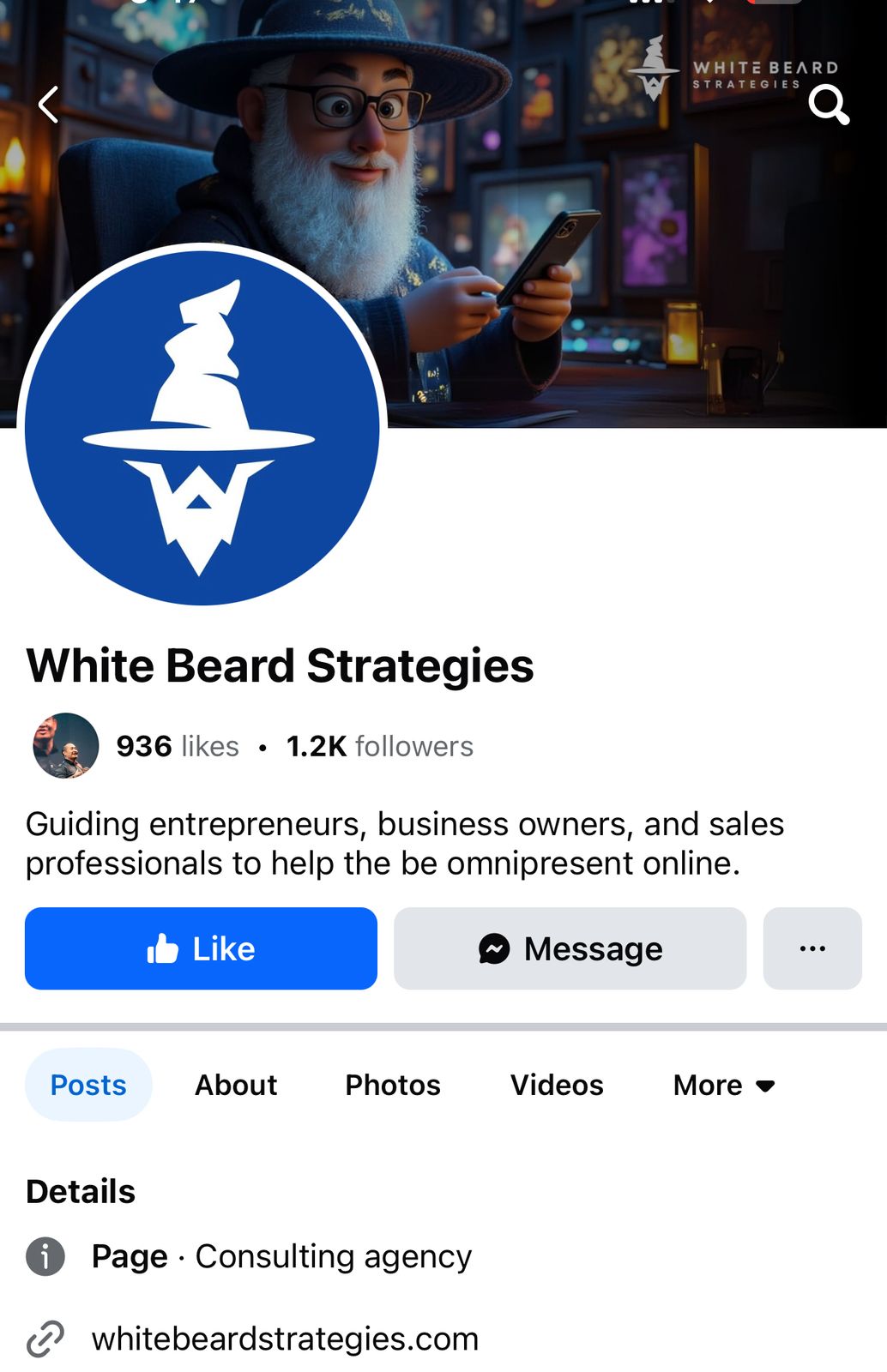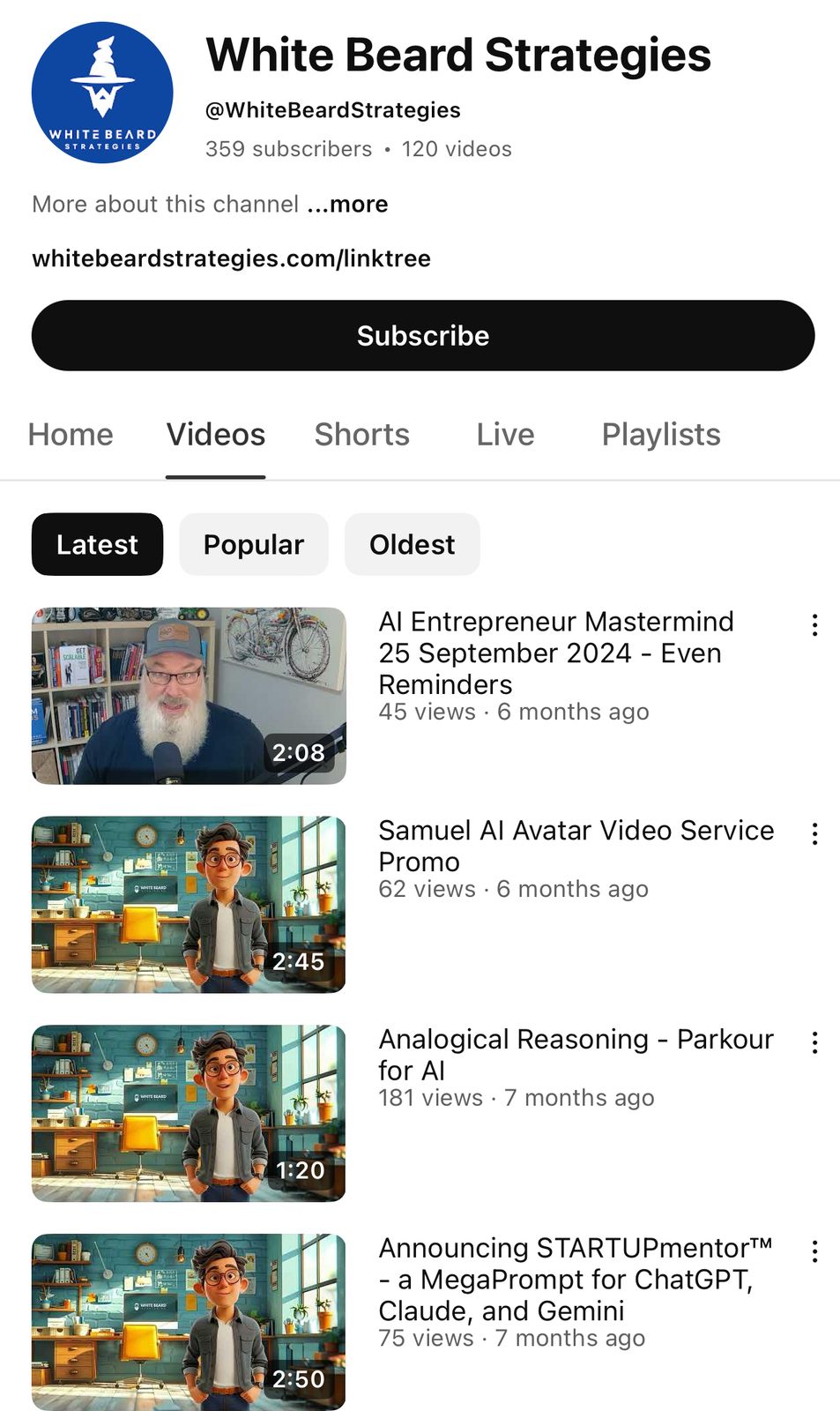
If you’re an entrepreneur still thinking AI is only for coders and Silicon Valley startups, you’re missing the big opportunity. In this Coach Yu Show, I sat down with Jonathan Mast, founder of White Beard Strategies and a strong advocate for AI-driven success. His insight is clear: AI isn’t just for the tech-savvy. It’s a tool that enhances expertise, opening up new opportunities for those with decades of experience.

Why Experience Beats Hype in the AI Game
Jonathan runs a Facebook group focused on AI, with over 350,000 members. Around 110,000 people actively engage monthly. While Jeff Hunter may run a larger group, Jonathan keeps his audience highly active. That shows he understands how to use AI tools that produce real results.
According to Jonathan, the more experience you have, the more AI can amplify it. AI doesn’t replace your knowledge. It extends your reach.
You don’t need to know how to code. Jonathan shared an example of a 19-year-old team member who created a working script by prompting AI—without knowing Python or SQL. This shows how accessible AI tools have become.

About 20% of Jonathan’s clients are older professionals who are now exploring AI. These people have the time and means to experiment. They’re using AI to test business ideas, start new projects, and find better ways to serve their audience.
One example is a 72-year-old retired healthcare executive who used AI to create a digital resource hub for caregivers. With no prior tech background, she transformed her decades of knowledge into a thriving business that supports thousands. “This feels like a second career I never expected,” she told Jonathan.
They’re proving the stereotype wrong. Older entrepreneurs can thrive with AI because they already know how to build relationships and deliver value.
Navigating Facebook’s Challenges as an AI Entrepreneur
Running a large online community isn’t easy, especially when the platform itself throws up roadblocks. Jonathan Mast AI-focused group has over 350,000 members, and managing that scale is tough enough without Facebook’s policies making it harder.
One big challenge is Facebook’s moderation rules. When he bans spammers—often people selling pirated software—Facebook sometimes penalizes him. Their system flags mass removals as a negative signal, even if it’s for keeping the group clean.
To manage the group, Jonathan brought on moderators. AI has democratized technology and taken the tech part out of it. “I don’t have to learn it,” Jonathan said. “I just go to Perplexity, and it tells me exactly which buttons to press.”
He shared a story of a former sales manager who had never used design software before. With Perplexity and ChatGPT guiding her step-by-step, she created a high-converting pitch deck in a single afternoon—something she previously thought only a designer could do.
But even with help, the platform still creates friction. He spends more time fighting Facebook’s tools than building community.
Even so, Jonathan keeps teaching his members how to grow businesses with AI, despite the platform’s limits.

He knows AI can’t fix everything, but it can make certain tasks easier. He’s teaching others how to handle these platform challenges, streamline their processes, and build thriving communities—even when the platform itself seems to stand in their way.
Agentic AI: What’s Coming Next
Jonathan doesn’t think AI will replace jobs. But it will change how we work.
Like with the personal computer or the internet, those who adapt will thrive. Those who don’t will fall behind.
Many businesses now use AI agents for routine work—support tickets, customer service, scheduling. These tools are efficient, but they have one big weakness: trust.
AI can’t explain its decisions clearly. People are already skeptical of human sales reps. AI makes that harder. If users can’t understand how decisions are made, trust breaks down.
Jonathan also noted that some AI tools give inconsistent results. A model may complete a task three times in a row, then suddenly refuse on the fourth try. That unpredictability makes AI harder to rely on.
Jonathan often uses API-driven tools because they’re more consistent. But they aren’t cheap. Every query has a cost. That’s why OpenAI and Anthropic are moving to premium pricing. Jonathan says Anthropic told him they prefer fewer high-paying users over many low-fee ones.

Why Trust Still Matters in an AI-Driven World
AI helps you execute faster. But it can’t replace trust.
Jonathan predicts that, soon, you won’t always know if you’re talking to a person or an AI.
On a Zoom call, you might not be able to tell if the other voice is real. As AI agents become more advanced, trust will be harder to maintain.
This is why relationships still matter. If you’re building trust over time, you’ll stand out—human or not.
Jonathan and I both agree that speed alone doesn’t win clients. People choose to work with those they trust. That’s true for any industry.
In a recent situation, I gave Jonathan a step-by-step guide for a Google issue. He could have done it himself or hired someone cheap on Fiverr. But he said, “I trust you guys to handle it.” That trust came from years of working together.
Trust still drives buying decisions, even in an AI-powered world.
The lesson here is clear: while AI can streamline processes and enhance efficiency, it can’t replace relationships. People still pay a premium for experience, credibility, and the peace of mind that comes from working with someone they trust. As automation increases, trust becomes even more valuable.
Smaller Teams. Bigger Output
Jonathan used to run a digital agency with four times the staff he has now. Thanks to AI tools and upskilling his team, he gets the same results with fewer people.
One of Jonathan’s peers in the legal field achieved similar results. By training a GPT on years of legal briefs and internal research, she cut her research assistant team in half—saving time and cost while delivering faster results to clients.
One VA used to write five pieces of content a week. Now, top performers produce five a day. Not everyone is there yet, but the standard is rising.
Instead of hiring more staff, Jonathan trains his current team to use AI better. That saves money and builds long-term loyalty. His team feels more capable and earns more.
A public speaking coach Jonathan works with created her own GPT trained on her decades of coaching materials. Now, her students can get on-demand feedback on speech structure, timing, and tone—just like working with her in person. “It’s like having me in their pocket,” she said.
With those savings, Jonathan can take on bigger projects, support community work, and offer better service. It’s not just about cutting costs. It’s about doing more with what you already have.
Looking ahead, AI isn’t about replacing people—it’s about unlocking their full potential. Jonathan’s approach shows that when entrepreneurs invest in their teams and embrace new tools, the results are extraordinary.
